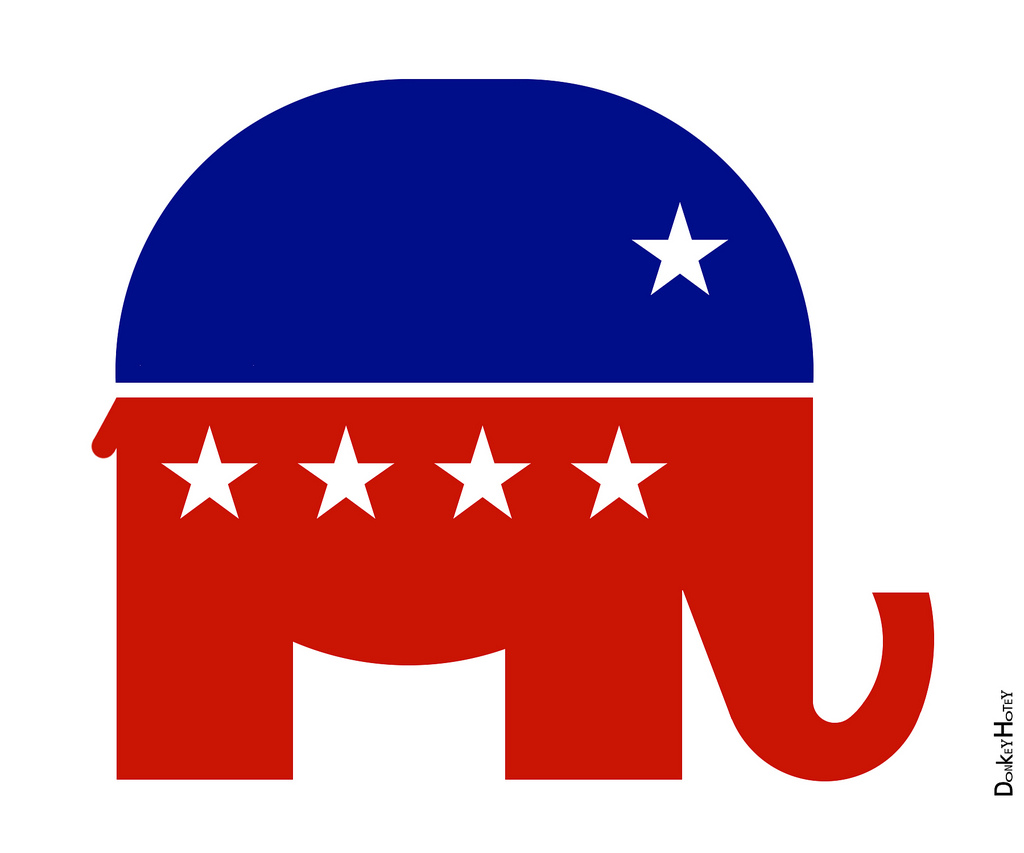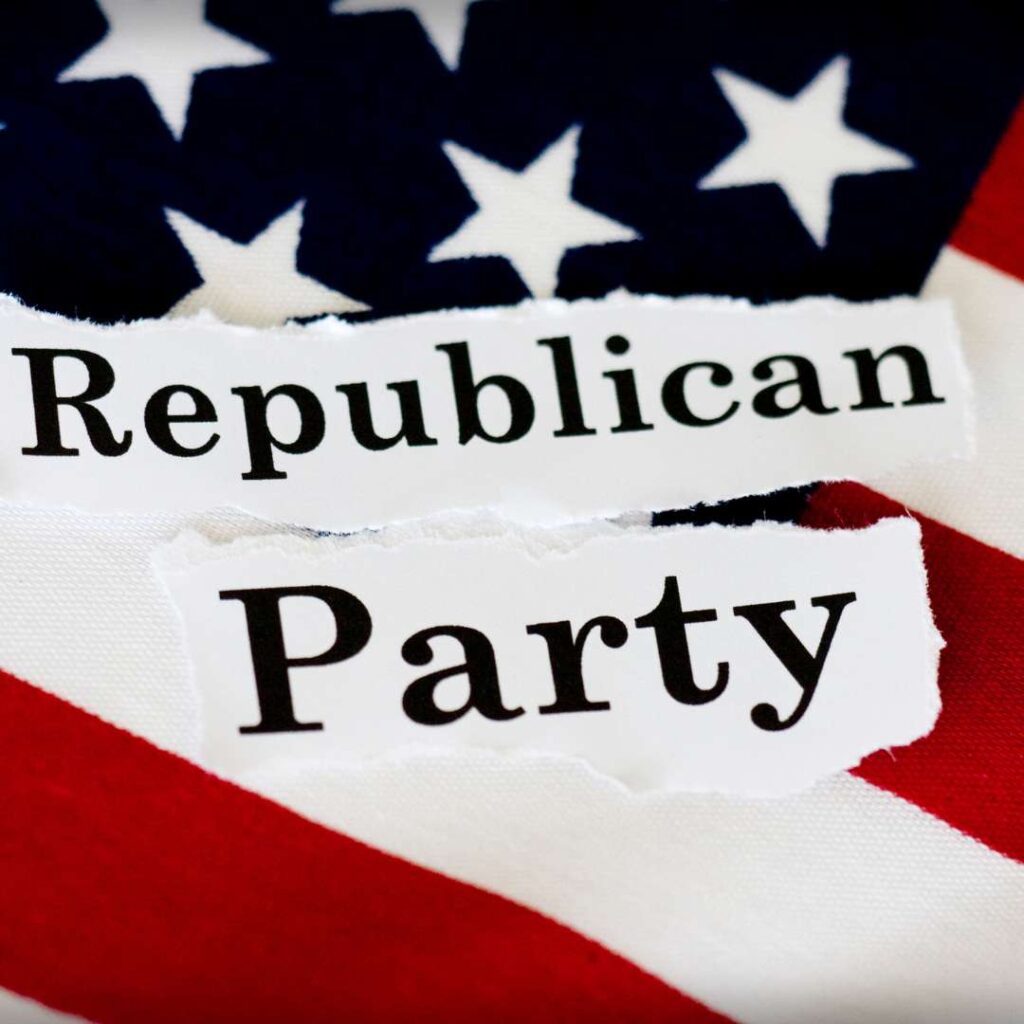Why Was The Republican Party Formed: A Comprehensive Historical Analysis
The formation of the Republican Party is one of the most significant events in American political history, marking a turning point in the nation's political landscape. Founded in 1854, the party emerged as a response to the pressing issues of slavery and territorial expansion. Understanding the origins of the Republican Party provides critical insights into the evolution of American politics and the ongoing struggle for equality and justice. This article delves deep into the reasons behind the party's formation, its key principles, and its impact on American history.
As the United States grappled with the moral and economic implications of slavery, the need for a new political entity became apparent. The Republican Party was born out of a coalition of anti-slavery activists, former Whigs, and Free Soilers who sought to challenge the dominance of the pro-slavery Democratic Party. This movement was not only about political ideology but also about reshaping the nation's values and future direction.
This article aims to explore the historical context surrounding the formation of the Republican Party, its founding principles, and its lasting legacy. By examining key events, influential figures, and the socio-political climate of the time, we will uncover the reasons why this party was established and its significance in shaping modern American politics.
- Michigan Sos Online Services Your Ultimate Guide To Accessing State Services Digitally
- How Old Is Mike Pompeo A Comprehensive Guide To His Age Biography And Legacy
Table of Contents
- Historical Context: The Era of Slavery and Expansion
- Reasons for the Formation of the Republican Party
- Key Founders and Influential Figures
- Core Principles of the Republican Party
- Impact on American Politics
- Economic Policies and Industrialization
- The Role of the Republican Party in the Civil War
- Reconstruction Era and the Republican Party
- Evolution of the Republican Party in Modern Times
- Conclusion and Future Implications
Historical Context: The Era of Slavery and Expansion
The mid-19th century was a tumultuous period in American history, characterized by deep divisions over the issue of slavery and the expansion of territories. The Missouri Compromise of 1820 and the Compromise of 1850 had temporarily addressed these tensions, but the Kansas-Nebraska Act of 1854 reignited the debate. This act allowed new territories to decide whether to permit slavery through popular sovereignty, effectively nullifying the Missouri Compromise.
As a result, anti-slavery advocates recognized the need for a new political party that could effectively oppose the pro-slavery policies of the Democratic Party. The Republican Party emerged as a coalition of diverse groups, including former Whigs, Free Soilers, and abolitionists, united by their commitment to restricting the spread of slavery.
Slavery and Territorial Expansion
The expansion of slavery into new territories was a central issue that galvanized the formation of the Republican Party. Many Americans believed that allowing slavery to spread would undermine the principles of freedom and equality enshrined in the nation's founding documents. The Republican Party sought to prevent the expansion of slavery, advocating for free labor and equal opportunities for all citizens.
- Love Island Cast Ages A Comprehensive Guide To Your Favorite Contestants
- Kylie Jenner With Kardashian Sisters The Ultimate Guide
Reasons for the Formation of the Republican Party
The formation of the Republican Party was driven by several key factors, including opposition to slavery, dissatisfaction with existing political parties, and the desire for economic development. These reasons reflect the complex socio-political climate of the time and highlight the party's commitment to progressive ideals.
Opposition to Slavery
One of the primary reasons for the party's formation was its strong opposition to slavery. The Republican Party was founded on the belief that slavery was morally wrong and economically unsustainable. By advocating for the restriction of slavery, the party aimed to preserve the integrity of the Union and promote equality for all Americans.
Dissatisfaction with Existing Parties
The Whig Party, which had traditionally opposed the Democratic Party, was in decline by the 1850s due to internal divisions over the issue of slavery. Many former Whigs, disillusioned with their party's inability to address the slavery question, joined forces with other anti-slavery groups to form the Republican Party. This new party offered a fresh alternative to the existing political establishment.
Key Founders and Influential Figures
The Republican Party was founded by a group of dedicated individuals who shared a common vision for the future of the United States. Some of the key founders and influential figures include:
- Alvan E. Bovay: A lawyer and anti-slavery activist who played a pivotal role in organizing the first Republican Party meeting in Ripon, Wisconsin.
- William H. Seward: A prominent anti-slavery politician and former governor of New York who became a leading figure in the Republican Party.
- Abraham Lincoln: Although not one of the original founders, Lincoln's leadership as the first Republican president solidified the party's legacy and influence.
Core Principles of the Republican Party
The Republican Party was founded on a set of core principles that reflected its commitment to social justice, economic progress, and national unity. These principles include:
- Opposition to the expansion of slavery
- Support for free labor and equal opportunities
- Advocacy for economic development and industrialization
- Commitment to preserving the Union
Free Labor and Economic Opportunities
The Republican Party emphasized the importance of free labor and equal economic opportunities for all Americans. By opposing the expansion of slavery, the party sought to create a more equitable society where individuals could thrive based on their skills and hard work rather than their social status or race.
Impact on American Politics
The formation of the Republican Party had a profound impact on American politics, reshaping the nation's political landscape and influencing future generations. The party's success in electing Abraham Lincoln as president in 1860 marked a turning point in American history, leading to the Civil War and the eventual abolition of slavery.
Electoral Success and Political Influence
Under Lincoln's leadership, the Republican Party became the dominant political force in the United States during the mid-19th century. The party's commitment to preserving the Union and ending slavery earned it widespread support among Northern states and paved the way for its continued influence in American politics.
Economic Policies and Industrialization
In addition to its stance on slavery, the Republican Party also championed policies that promoted economic development and industrialization. These policies included:
- Support for the Transcontinental Railroad
- Advocacy for protective tariffs to support American industries
- Encouragement of westward expansion and settlement through homestead laws
Industrialization and Technological Advancements
The Republican Party's focus on economic development contributed significantly to the industrialization of the United States during the late 19th century. By supporting infrastructure projects and fostering innovation, the party helped transform the nation into a global economic powerhouse.
The Role of the Republican Party in the Civil War
The Civil War was a defining moment in American history, and the Republican Party played a crucial role in shaping its outcome. Under Lincoln's leadership, the party remained steadfast in its commitment to preserving the Union and ending slavery, ultimately achieving victory in 1865.
Abolition of Slavery and Reconstruction
Following the Civil War, the Republican Party spearheaded efforts to reconstruct the South and integrate former slaves into American society. The party's support for the 13th, 14th, and 15th Amendments to the Constitution ensured the legal abolition of slavery and the protection of civil rights for African Americans.
Reconstruction Era and the Republican Party
The Reconstruction Era marked a period of significant change in the United States, as the nation sought to rebuild and reconcile after the Civil War. The Republican Party played a central role in this process, advocating for policies that promoted equality and justice for all Americans.
Challenges and Achievements
Despite facing opposition from Southern Democrats and other groups, the Republican Party achieved several key victories during the Reconstruction Era, including:
- The establishment of civil rights protections for African Americans
- The implementation of educational and economic programs to assist former slaves
- The integration of African Americans into political and social institutions
Evolution of the Republican Party in Modern Times
Since its formation in 1854, the Republican Party has evolved significantly, adapting to changing social, economic, and political conditions. While its core principles of freedom, equality, and opportunity remain unchanged, the party has embraced new issues and challenges in the modern era.
Contemporary Issues and Challenges
Today, the Republican Party continues to play a major role in American politics, addressing issues such as healthcare, education, and environmental policy. By remaining true to its founding principles while embracing innovation and progress, the party remains a vital force in shaping the nation's future.
Conclusion and Future Implications
In conclusion, the formation of the Republican Party was a pivotal moment in American history, driven by the need to address the pressing issues of slavery and territorial expansion. By opposing the spread of slavery and advocating for free labor and economic development, the party helped shape the nation's values and future direction. The legacy of the Republican Party continues to influence American politics today, as the party adapts to new challenges and opportunities.
We invite you to share your thoughts and insights on the formation of the Republican Party by leaving a comment below. Additionally, feel free to explore other articles on our website for more in-depth analyses of American history and politics.
Data Sources:
- America's Historical Newspapers (Readex)
- Library of Congress
- U.S. National Archives
- Kennedy Assassination Newspaper Value A Comprehensive Guide To Collectible History
- Floyd Mayweather Weight Height The Ultimate Guide To His Physical Stats And Boxing Career

Republican Party Symbol ClipArt Best

Republican Party Crystal Lake Plaza
Republican Party Attack PNG Images & PSDs for Download PixelSquid